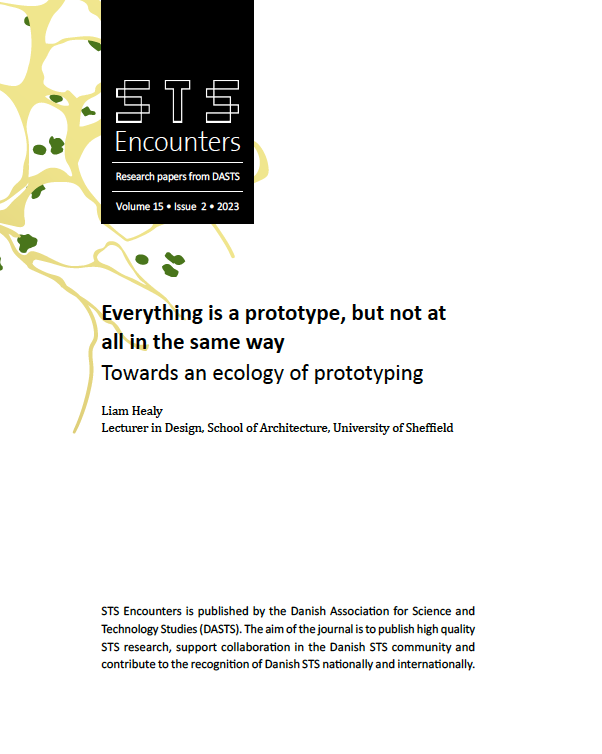Everything is a prototype, but not at all in the same way
Towards an ecology of prototyping
DOI:
https://doi.org/10.7146/stse.v15i2.139811Keywords:
prototyping, ecology, participatory design, speculative and critical design, cosmopolitical prototyping, design-researchAbstract
In this article I reflect on discussions from the 2022 DASTS conference around the shifting nature of prototyping in design research. Specifically, I reflect on Ruth Neubauer and colleagues’ work on ‘prototyping living spaces’ (2022, and this volume), and Simy Gahoonia and Christopher Gad’s (Forthcoming; 2022) study of the Danish Technical Comprehension experiment. I also reflect on an element of my own design-research that has involved developing speculative prototypes, namely a tandem bicycle that was designed as an ‘interview machine’ for gathering research on the Calais Jungle refugee camp in France (Healy, 2021). I go on to develop what I refer to as a prototyping ecology to underpin the above and to consider the different modes and methods involved in different kinds of prototyping practices, and the ways they stabilise and destabilise the situations they enter into. Finally, I ‘test’ this ecology by revisiting the aforementioned examples to explore the forms of ‘stirring’ that prototypes participate in, how they straddle the ecology, and the ways they produce and encourage research events where I argue for the importance of how one might become attuned to the ways they encourage the unexpected by forming new relations and events through material intervention.

Downloads
Published
How to Cite
Issue
Section
License
Copyright (c) 2023 Liam Healy

This work is licensed under a Creative Commons Attribution-NonCommercial-ShareAlike 4.0 International License.
Starting with volume 15, articles published in STS Encounters are licensed under Attribution-NonCommercial-ShareAlike 4.0 International (CC BY-NC-SA 4.0). The editorial board may accept other Creative Commons licenses for individual articles, if required by funding bodies e.g. the European Research Council. Previous articles are not licensed under Creative Commons. In these volumes, all rights are reserved to the authors of the articles respectively.




